Privacy is a hot topic in the 21st century. From smartphones to constant CCTV surveillance, it’s getting harder to stay off the grid. Many people are concerned about the direction our society is heading. If you value your privacy and want to support free speech, here are some excellent alternatives to popular online services that might offer you some peace of mind. These brands haven’t paid to be included, and they weren’t even aware they would be featured! However, we stand by their quality, and some tools are used here at Listverse.
10. DuckDuckGo—Google Alternative
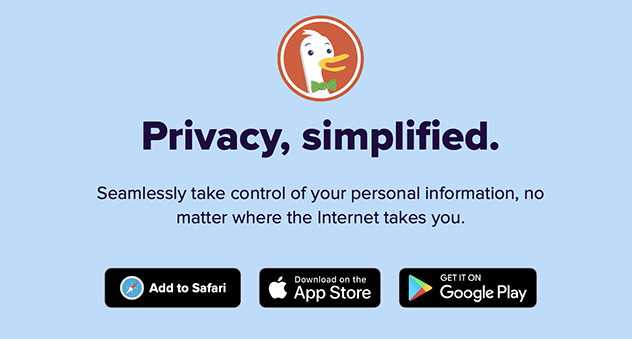
Google dominates the search engine market, which raises several concerns. One major issue is how Google collects your data. They track everything from your search queries to your location and how long you search. While Google offers some privacy settings, most people don’t use them.
DuckDuckGo is an appealing alternative if you’re worried about your past searches resurfacing or if you oppose mass data harvesting. Unlike Google, DuckDuckGo doesn’t store any of your data. Besides allowing you to search without fear of embarrassment, it also offers useful features that Google has removed over the years. Its interface is similar to Google, but you’ll immediately notice the lack of ads and the big duck in the corner.
9. Epic Privacy Browser—Safari, Chrome, Firefox Alternative
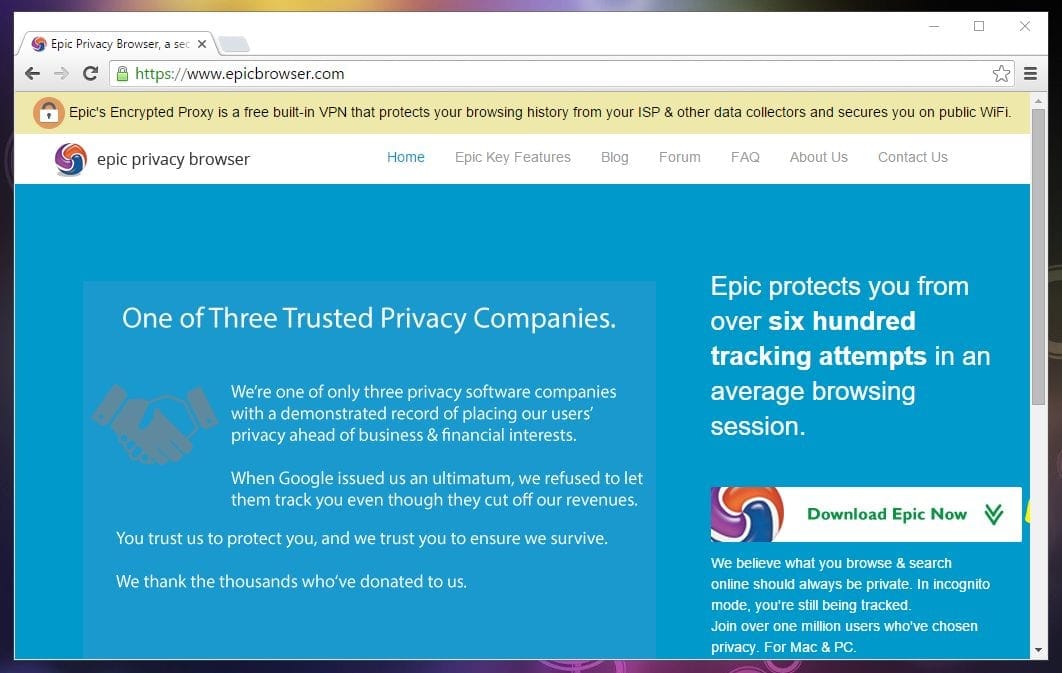
Google’s influence extends beyond its search engine. Google Chrome, launched in 2008, quickly became a popular browser. While it never reached the 96% market share of Internet Explorer in its heyday, Chrome now holds 49.3% of the market—18% ahead of Safari.
By promoting its own browser, Google can gather more user data and create detailed profiles of individual consumers. However, this relentless pursuit of data has led to public pushback, with many turning to open-source software for better privacy.
Ironically, many privacy-focused browsers like Epic are built using Chromium, Google’s open-source browser project. Epic uses this base code to create a browser that blocks ads, tracking, referral, and IP data transfers. It essentially operates in permanent “Incognito Mode,” deleting your history and cookies each time it closes. The trade-off is that almost no Google Chrome extensions work in the Epic browser.
8. Mastodon & Gab—Twitter Alternatives

Social media is a prominent concern in the digital age. Questions about who should be allowed on these platforms, what they can post, and the platform’s responsibility are constantly debated. In response to the major players’ lack of action, smaller sites like Mastodon have emerged.
Mastodon’s core principle is decentralization. Unlike Facebook and Twitter, which centralize moderation, Mastodon allows users to create and moderate their own sites.
However, Mastodon faced an identity challenge when Gab, another social media site, migrated to its servers. While both platforms aim to promote free speech, Mastodon relies on decentralized moderation, while Gab has almost zero censorship, attracting users with controversial views. Mastodon has expressed opposition to Gab but can’t prevent Gab from using the service. However, Mastodon’s moderation approach allows users to block any content they don’t want to see.
7. Minds—Facebook Alternative

While Gab and Mastodon are modeled after Twitter, Minds offers a more Facebook-like experience.
Minds closely resembles Facebook in its design. However, it distinguishes itself with a commitment to privacy, data protection, and the promotion of free speech. Minds also allows users to earn money by using the platform. Users receive tokens for spending time on the site or posting content. These tokens can be used to boost posts or can be exchanged for cryptocurrency, potentially translating into real money.
Minds relies on a small team of human censors instead of AI to detect prohibited content. Like other alternative social media sites, Minds has attracted some far-right users, but the platform focuses on removing extremist posts while allowing legitimate political disagreements.
6. Signal—WhatsApp Alternative

WhatsApp is known for its end-to-end encryption, which prevents third parties from intercepting calls or messages. However, many users are concerned about the other data WhatsApp collects and how it’s used, especially since Facebook acquired the platform.
Signal uses the same encryption technology as WhatsApp and Facebook Messenger but with additional features like screenshot blocking, self-destructing messages, a non-learning keyboard, and password-protected files. All data on Signal is stored locally and encrypted, making it one of the most secure messaging platforms, popular among journalists and activists.
5. ProtonMail—GMail Alternative
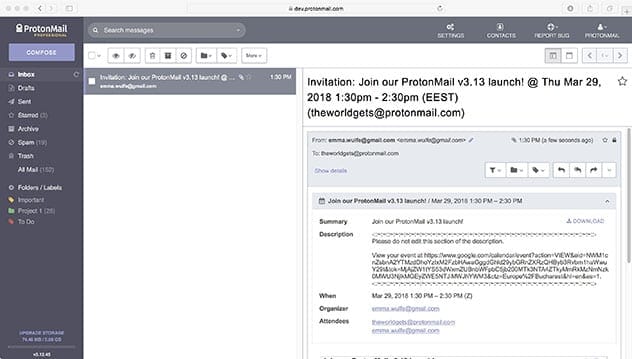
ProtonMail is a privacy-focused email service with both free and subscription-based options. It functions like other email services but uses end-to-end encryption for messages between ProtonMail users and zero-access encryption for all other emails. For extra security, photos aren’t automatically loaded, and the service prompts you to confirm before opening a link. ProtonMail also allows you to create passwords and expiration dates for messages sent to non-ProtonMail users.
Based in Switzerland, known for its strong privacy laws, ProtonMail is highly regarded for its security. Free users are limited to 150 emails per day, and even the cheapest subscription package has a limit of 1,000. However, ProtonMail offers several packages and the option to create custom domains, making it suitable for personal and professional use.
4. Wickr—Snapchat Alternative
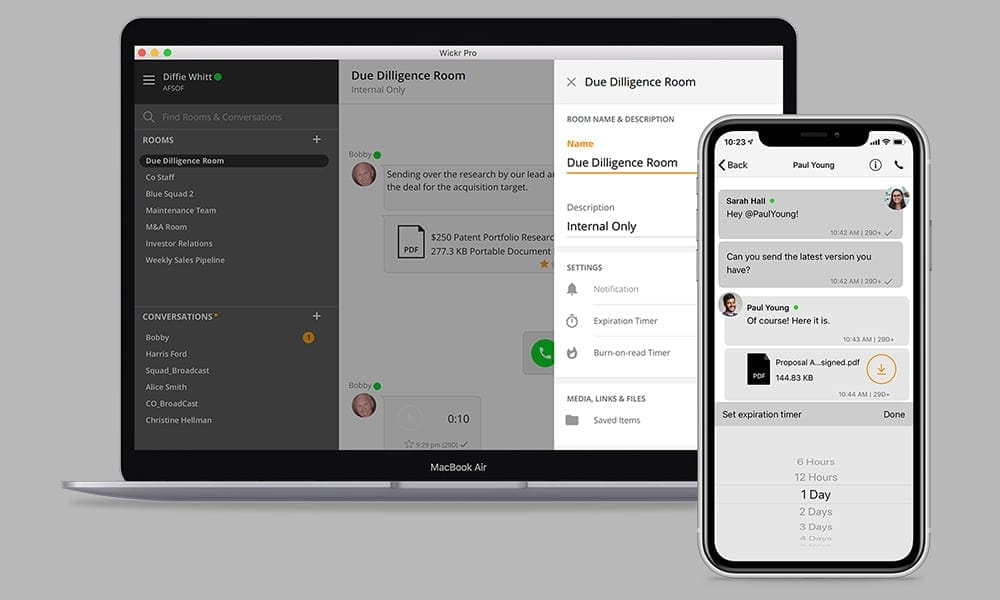
Often called the “alternative to Snapchat,” Wickr is an instant-messaging and video conferencing app available on Android and iOS, with desktop versions. It offers features like end-to-end encryption and messages that expire or self-destruct after being read. The app also includes security measures like wiping metadata from sent files and multiple ways to confirm the identity of the person you’re talking to.
Initially designed for high-profile business professionals, Wickr has become popular among those who prefer anonymity. Some users have reported that drug dealers are using the app to find customers anonymously, although others claim they simply take your money and run.
3. IDrive—Cloud Storage Alternative
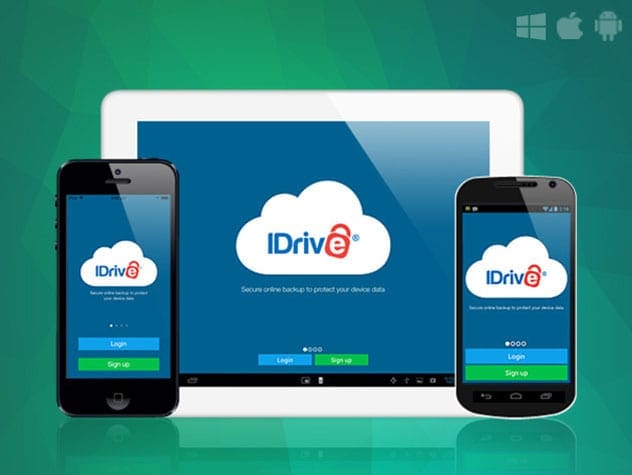
With AI and machine learning advancing rapidly, it’s important to consider the privacy implications of storing your data online. Uploading a photo for online storage in 2020 is different than it was in 2015. Google, for example, scans your photos for metadata and groups them by date and location. They also scan the photos themselves, allowing you to search for things like “dog” and tailoring advertisements to you.
IDrive offers a more private alternative. It provides backup, archiving, encryption, and security features without scanning your data. While Google offers 15GB of free storage, IDrive only offers 5GB before charging about $50 per year for 5TB. However, it’s a good choice for those who prioritize privacy over price.
2. PixelFed—Instagram Alternative
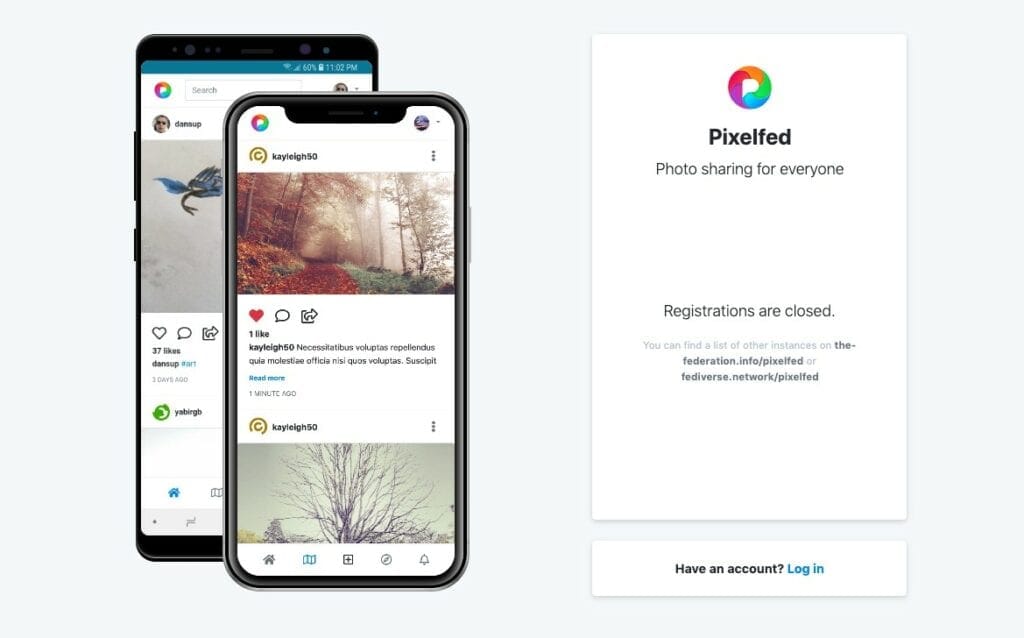
While Instagram doesn’t collect as much detailed data as its parent company, Facebook, there are still reasons to be cautious. Instagram can use the billions of uploaded photos to improve its AI behind the scenes, even without introducing new features to users. The claim that they can use your images, royalty-free, forever is true, so it’s wise to pause before posting.
The creators of Mastodon developed PixelFed as an open-source alternative. It offers similar features to Instagram with strong security but without selling your data to advertisers. Like Mastodon, PixelFed is federated and decentralized, meaning it operates like a number of mini-sites. The advantage is that there is no central HQ seeking profit, but the downside is that an instance could be poorly managed or disappear depending on who runs it.
1. Librem—Android and iPhone Alternative

It’s important to remember that using alternative services is pointless if your device shares your information anyway. There’s no point in using DuckDuckGo on your Pixel phone if you’re concerned about privacy.
If you ask someone knowledgeable about privacy which phone they recommend, they’ll likely say “Librem.” Built to be the most secure phone on the market, the Linux-based device offers encryption without mining your data, along with features like kill switches.
However, there’s a significant drawback: the newly released Librem 5 costs $1,999 (for the “Made In The USA” edition) and has received lukewarm reviews, particularly regarding its battery life. While most reviewers praise its approach to privacy and security, they note that it still needs work as a phone. That being said, Librem could be useful for journalists who need it only occasionally, and most reviews are hopeful that future releases will improve.
The makers of Librem also produce secure laptops (Librem 13) and desktop computers (Librem 15). You can check those out here.










